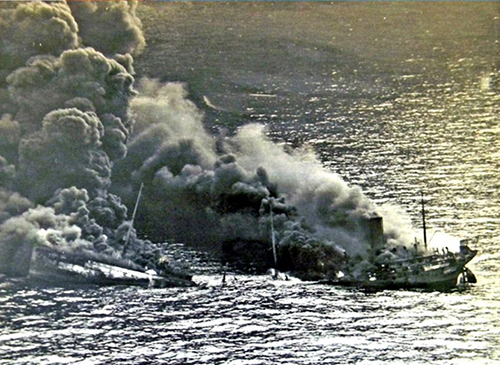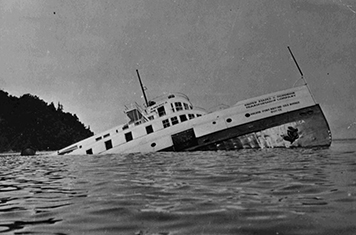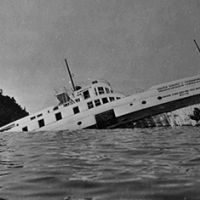NOAA Participates in Global Standards for the Remediation and Assessment of Shipwrecks
APRIL 22, 2024 — The past century of warfare and commerce has left a legacy of merchant and military shipwrecks across the world’s ocean. These wrecks pose threats from oil, munitions, and other hazardous cargo, but are also historical resources, artificial reefs, recreational dive sites, and many are war graves. An estimated 8,000 vessels were sunk in World War II alone and the major flag states, including the U.S., UK, Germany, and Japan, all have potentially polluting wrecks in their waters. But these wrecks are also in the waters of many smaller nations, particularly in Oceania and North Africa, where the capacity to manage them is often quite limited.

This April, the Office of Response and Restoration’s (OR&R) Regional Operations Supervisor, Doug Helton, participated in a London, UK, workshop on developing Global Standards for the Remediation and Assessment of Potentially Polluting Wrecks. Participants included government, academic, and nongovernmental organization representatives from the UK, U.S., Germany, Netherlands, Japan, France, Malta, Australia, Indonesia, and Samoa. The meeting focused on each nation’s governance and management of potentially polluting wrecks.
Helton was asked to present the U.S. approach to potentially polluting wrecks, based on the NOAA RULET (Remediation of Underwater Legacy Environmental Threats) project, a joint effort between OR&R and NOAA’s Office of National Marine Sanctuaries to review, rank, and prioritize the thousands of historic wrecks in U.S. waters. That effort, begun in 2010, developed a list of 87 priority wrecks, based on their potential threats from oil pollution.
Ole Varmer, retired legal counsel from NOAA and now an advisor to The Ocean Foundation, presented the legal framework for wrecks in U.S. waters. Other countries have undertaken similar prioritization efforts, some modeled after the U.S. approach.
Sponsors of the meeting included The Ocean Foundation; the Waves Group, Ltd (a multinational maritime and offshore engineering consultancy), the International Committee on the Underwater Cultural Heritage of ICOMOS (an international NGO dedicated to historical and archeological conservation), the Intergovernmental Oceanographic Commission of UNESCO, the International Union for Conservation of Nature (IUCN), and Lloyd's Register Foundation’s Heritage and Education Centre, which has long history and interest in shipping and shipwrecks.
more images


